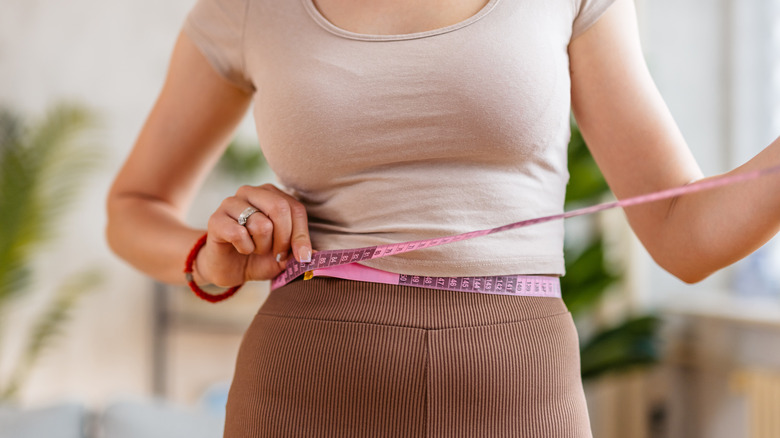The Deceivingly Healthy Habit That Can Raise Your Cholesterol
Cholesterol usually gets a bad reputation in the health industry. Your body needs cholesterol to produce hormones and build cells, and your liver makes all the cholesterol your body needs to sustain these functions. Cholesterol becomes a problem when you have too much of it in your system. You get this extra cholesterol from your diet, particularly in animal foods. What's worse is that the saturated fats in animal foods and baked goods cause your liver to make more cholesterol.
You can adopt healthy habits to help lower cholesterol, such as limiting these saturated fats in your diet and opting for leaner protein sources. Staying active, managing stress, and quitting smoking are also ways to keep your cholesterol in check. Another way to manage your cholesterol is to manage your weight. If your cholesterol is over the healthy limit, dropping your body weight by 10% can lower cholesterol, according to Heart UK. But don't try to lose weight too quickly through a low-calorie diet because you could see your cholesterol levels rise.
Rapid weight loss causes a temporary increase in cholesterol
A 2019 article in Current Developments in Nutrition highlighted the effects of very-low-calorie diets on the cholesterol levels of three people. A 48-year-old man lost 55 pounds in five months after following a diet that limited him to 500 to 800 calories a day. Although his good HDL cholesterol levels increased and triglyceride levels decreased, something strange happened with his LDL (or "bad") cholesterol. Before starting his diet, his LDL cholesterol was 148, and at one time it was as low as 52. However, it shot back up to 178. Eventually, his LDL stabilized to 72.
A 70-year-old woman saw something similar. She lost 41 pounds on the same diet, and her LDL increased by 49 points. Her cholesterol dropped 12 weeks later to 111, but this was 3 points higher than before she started her diet. Another woman who lost 79 pounds in eight months saw her LDL cholesterol rise by 43 points. Even though her cholesterol levels dropped again three months later, her LDL cholesterol was still 15 points higher than before her weight loss.
Why your cholesterol might rise after losing weight
While rising cholesterol might sound alarming, this didn't occur in all the patients in the study. To explain why this might have happened, you can look to an older study in 1991 in the American Journal of Clinical Nutrition. This study also saw the same dip then rise as the people followed their very low-calorie diet. During the maintenance phase of the diet, their cholesterol levels dropped again. The researchers suggested that while the people were on their diets, the cholesterol in their fat cells was being released into the bloodstream. Their bodies eventually would clear this cholesterol from their system.
AstonRx says not to be alarmed if you see your cholesterol rise during weight loss. When you reach the maintenance phase of your diet, you should see your cholesterol levels decline. Your cholesterol could see healthy levels once your body fat is reduced to healthier levels, which is less than 22% for men and less than 32% for women.



